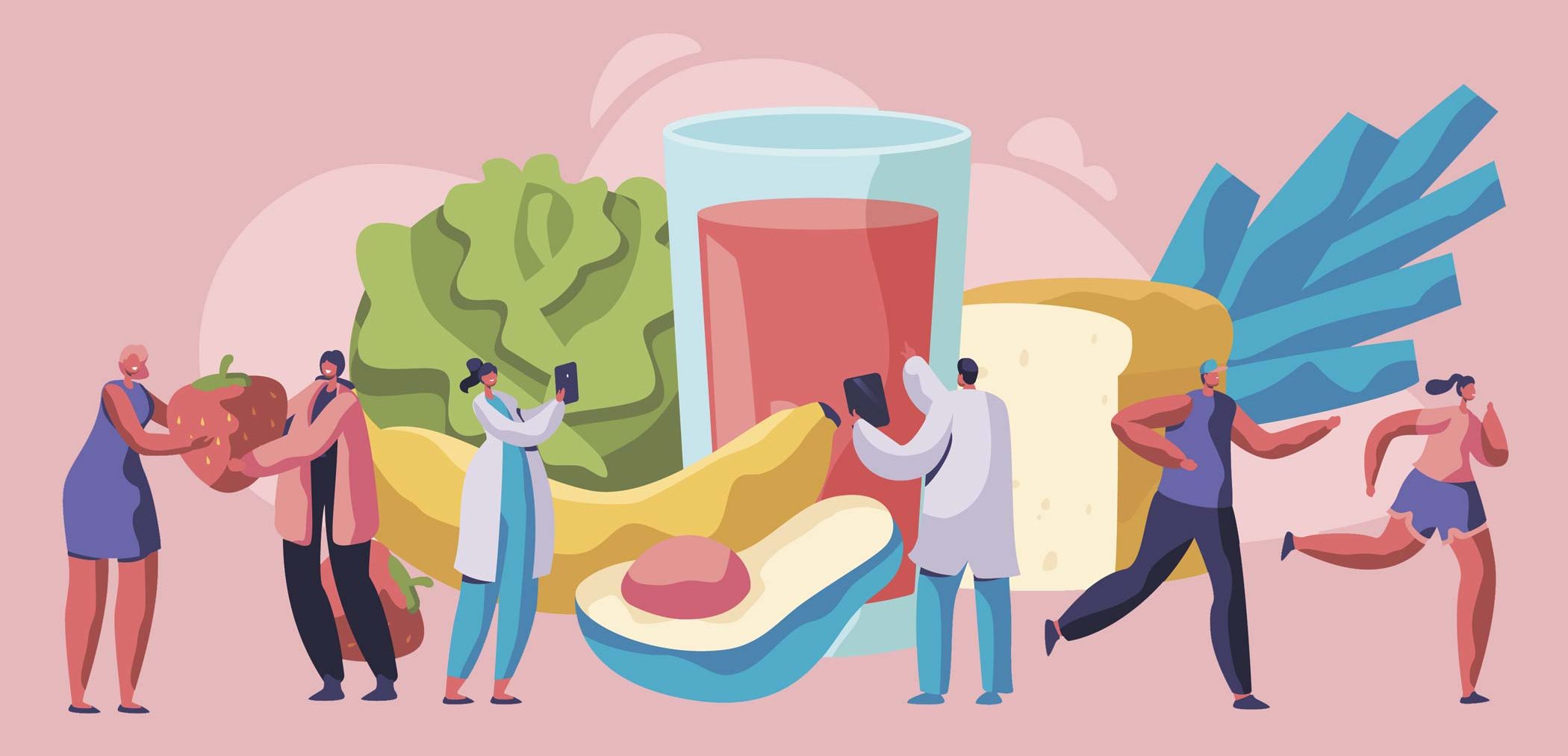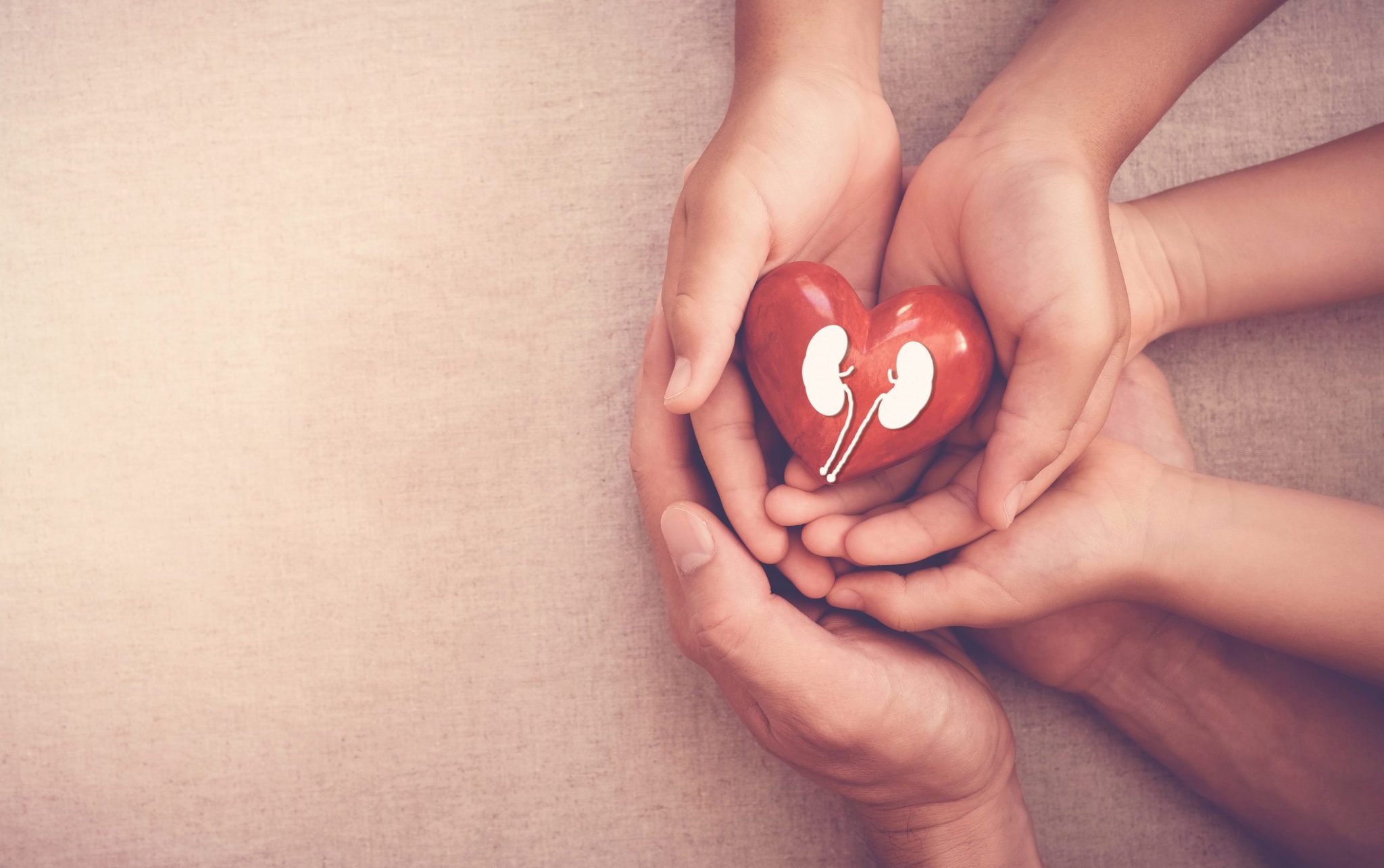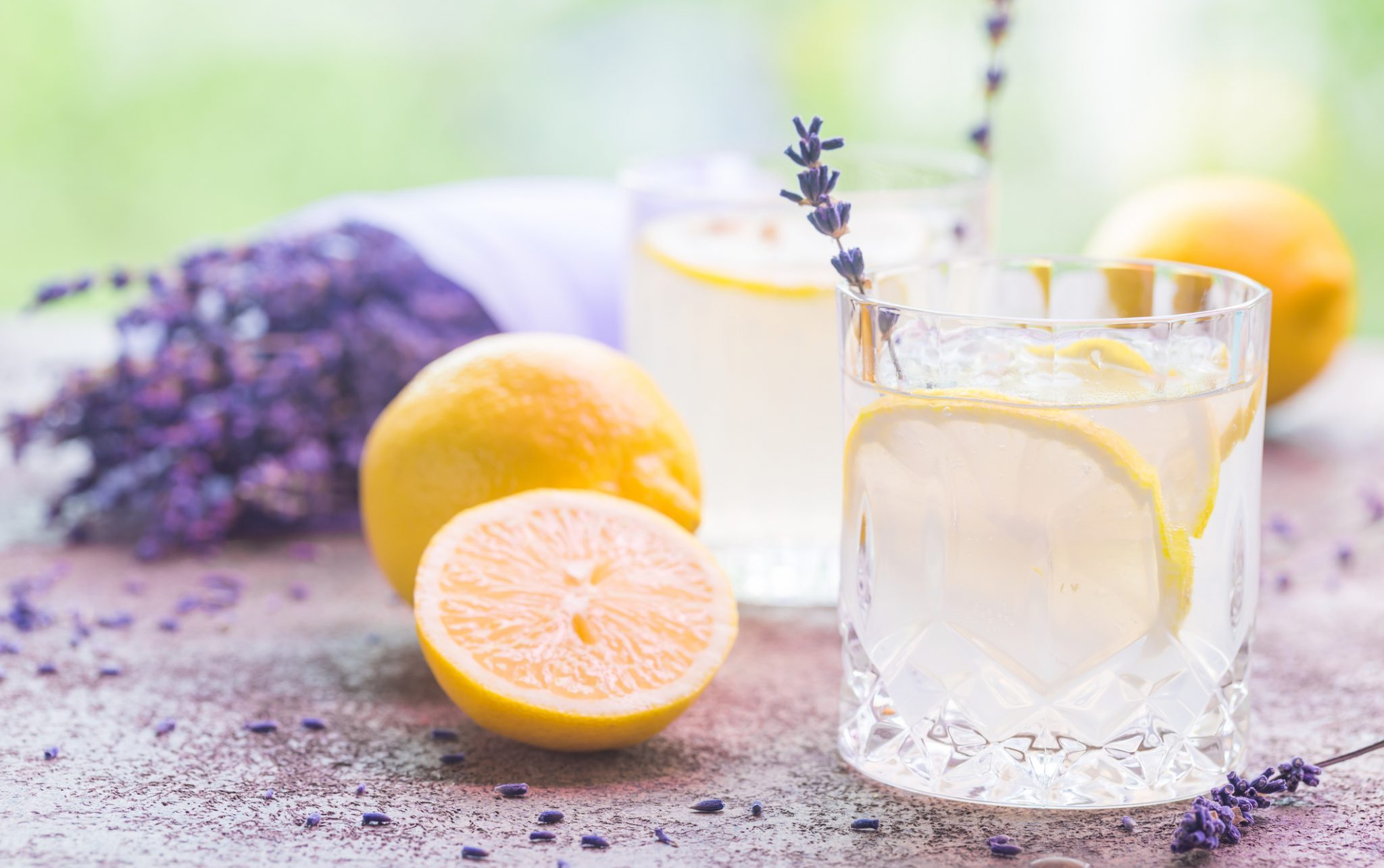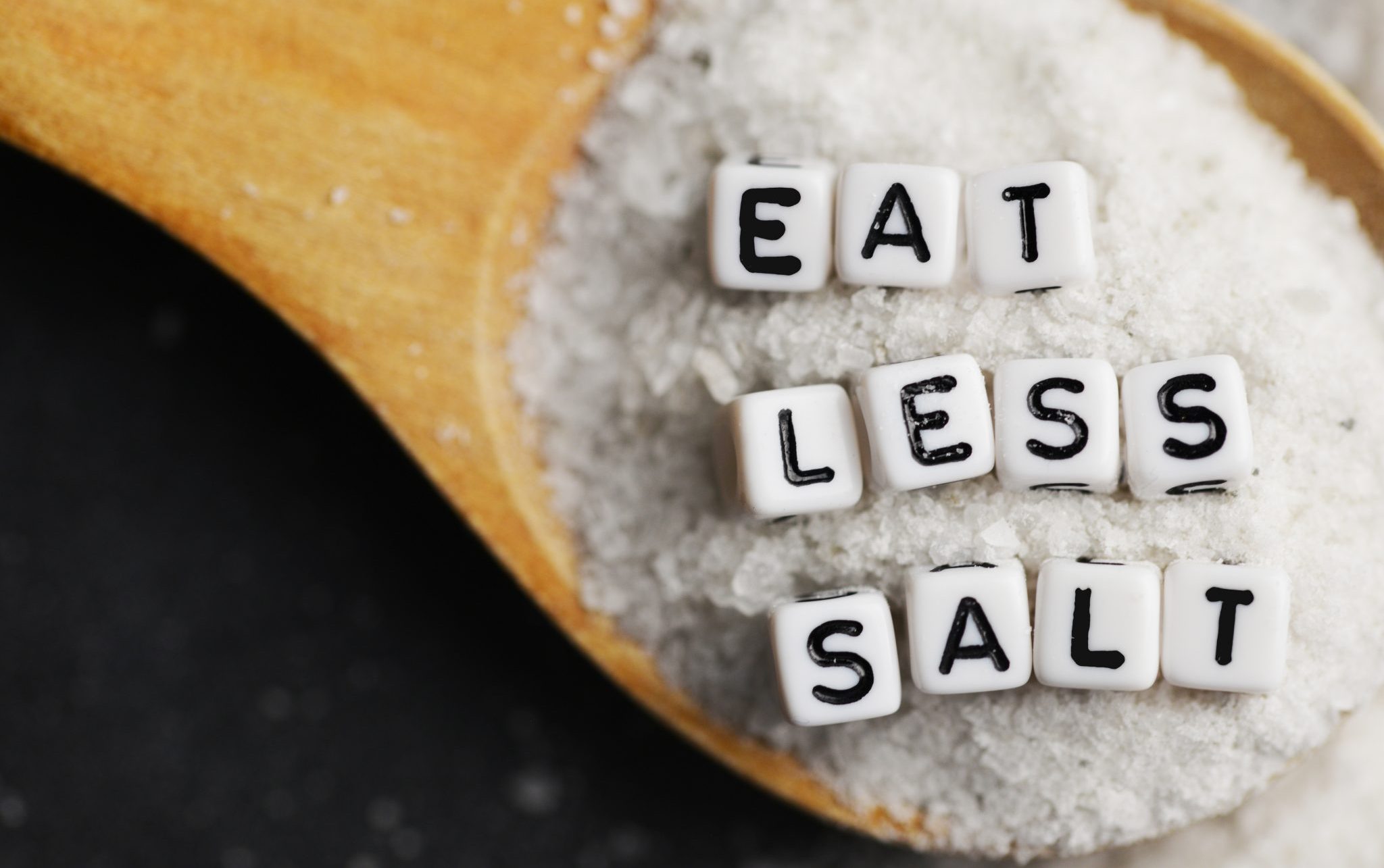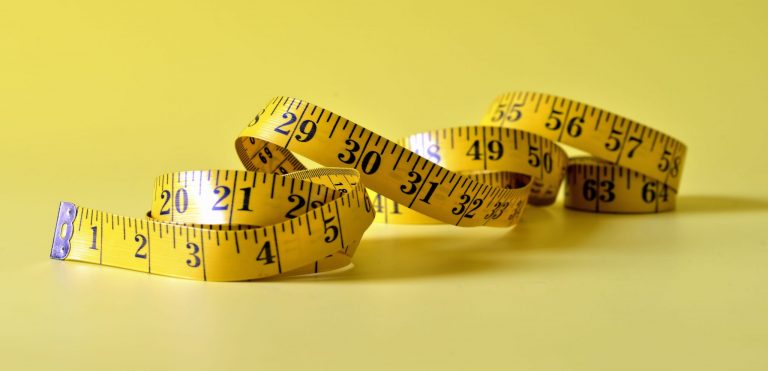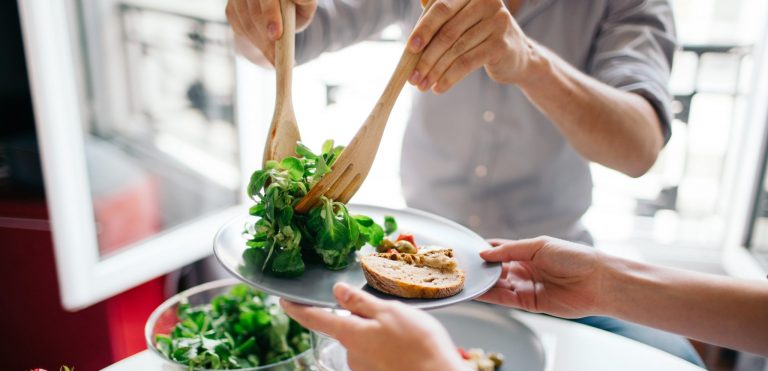Of all the organs, the heart and brain hold the crown at the top, but they’re not the only ones worth mentioning. The kidneys are two bean-shaped organs nestled safely in the abdominal cavity; they are responsible for filtering the blood and maintaining the body’s delicate fluid balance. If you’ve ever experienced kidney problems, you’ll know how crucial this pair can be and why it’s vital to ensure you eat healthy foods for your kidneys that don’t put them under additional stress.
What you can expect in this article:
- How your kidneys work
- Why your diet matters
- The best kidney-friendly foods
- Which diet nightmares to avoid
How those bean-shaped organs work
Located on each side of your spine, around the area where the rib cage ends, your kidneys are busy working away and filtering your blood – a total of half a cup every minute! To separate the clean blood from the waste products, the kidneys have tiny little units called nephrons (almost one million in each organ), which provide a filtration system that divides the blood from waste as it passes.
The kidneys make urine, which is then moved to your bladder through two tiny tubes and eventually expelled from the body. While it’s doing all that, these handy organs are also performing one other essential function – keeping the fluid balance. Imagine if they didn’t do their job and all that fluid was just left to build up until you burst?!
That’s what makes these two beans so special. Their role might not be glamorous, but it is essential in keeping you going.
So, what is the best way to keep them healthy, and are there any foods that aid kidney function?
Why your diet matters
Chronic Kidney Disease, a general term for the gradual loss of kidney function, affects around 14% of the population (US). In its early stages, most people won’t even know that something is wrong. It’s only later as the kidneys begin to fail that symptoms become more noticeable.
What to look out for
If you have a family history of kidney disease, or are otherwise at risk, watch out for the following symptoms:
- Back pain
- Muscle cramping
- Nausea and vomiting
- Fatigue
- Low appetite
- Swelling, particularly in your feet and ankles
- Trouble sleeping
And be sure to check in with your doctor for blood and urine testing, who will be able to diagnose the issue and help you treat it.
Already know you have renal disease.
If you already have kidney disease and know about it, you also know that a long-term diet is one of the best ways to ensure better health outcomes. While we wish there was some magic pill that could do it for us the reality is dedication, day-in, day-out.
With these two little organsб responsible for processing waste within your body, it’s vital that you feed them with the right stuff. So, without delay, let’s get right to it and find out which are the best foods to eat to help kidney function.
Best kidney-friendly foods
While there is no “best foods to heal your kidneys” list, there are a number of food and dietary groups that promote renal health. You can adapt your diet to improve kidney function naturally or at least slow the progression of kidney disease.
Water
As long as you have no fluid restrictions due to dialysis treatment, one of the best things you can do for your renal health is to add a generous dose of that live-giving H2O every day. Sure, coffee, tea and fruit juices are fluid, but they also contain additional elements that make it a little more of a challenge for your body to process – aka more work for your kidneys. So, stick to the clear stuff!
Some renal patients also recommend adding a little lemon into the water to help prevent kidney stones and reduce the risk of infection. While this hasn’t been studied enough to be proven effective or ineffective, rest assured that adding a slice won’t cause any harm if you like your water with some flavor.
Cranberry juice
If you’ve ever had a urinary tract infection (UTI), you’ve probably heard the suggestion that cranberry juice is the ultimate go-to drink to cure all ails. Warning! Do see a doctor if you notice blood in your urine or have exceptional pain.
Cranberry juice is packed with vitamin C, which can help keep those renal organs of yours healthy (and hopefully infection free). But watch out, many shops stock varieties with high levels of sugar, and you may find more natural versions a little sour.
Omega 3
Unfortunately, your body cannot generate this fatty acid on its own, which is why you need to seek out alternative sources to get your fix. Great sources are fish such as salmon, herring or sardines, but if you’re not a fan of that seafood flavor, you can always take supplements to help.
Omega 3 helps prevent heart disease, plays a role in blood clotting and blood pressure, making it an essential nutrient to manage yours, and this is especially vital if you have kidney issues.
Blueberries
When it comes to fruits, there’s very few who can resist ripe and juicy blueberries. Aside from their delicious taste, these little blue globes pack a nutrient punch – fiber, vitamin C, low-calorie. For those with renal complications, berries can be an ideal refresher and antioxidant boost.
Other helpful berry friends include cranberries, raspberries, strawberries, grapes, and cherries, so feel free to indulge.
Cabbage
In your childhood, you either learned to love it or hate it; however, this simple leafy vegetable can be a handy accompaniment to any meal. It’s low in sodium (a kidney-diet plus) and contains relatively low levels of potassium too. Meanwhile, it’s packed with nutrients such as fiber, vitamin K and C, and folate.
Low potassium foods
(apples, peaches, carrots, white bread, rice, and pasta)
Potassium is an essential ingredient that regulates nerve and muscle function in the body. It helps to manage the rhythm of the heart and aids in ensuring an adequate fluid balance.
You might think that the more potassium, the better, but for those with kidney problems having an appropriate and not too high level is essential. That’s because it’s those little bean organs that are responsible for maintaining an appropriate level in the body.
Apples, for example, are full of the soluble fiber pectin, a substance that can help manage cholesterol and glucose levels in your blood. In addition, they also contain significant levels of vitamin C.
What should you avoid?
Now that you know which foods to eat help kidney function, let’s take a look at the other side of the coin and explore which items may harm your kidneys.
Salt!
This is the number one enemy of the kidney. Salt does liven up food, but behind the scenes, it has some pretty big downsides. That’s because the salt that we season our food which contains sodium, a compound that can affect your blood pressure. Too much and your pressure rises, causing a strain on your heart and those all-important kidneys.
Lowering the levels of salt in your diet can be a challenge to consider the increase in packaged and ready-made food, but it is possible. Aim to cook at home as much as possible, watch the level of salt you add to food, taste before you eat, and do your best to avoid ready meals.
Be careful with your meats
Recent studies have questioned whether or not red meat has an effect on kidney health. Although nothing conclusive has yet been confirmed, early results show that red meat proteins can make your kidneys work harder, and those who consume less have slightly better outcomes in CKD.
Foods with a phosphorus content
To keep your kidneys working in tip-top shape, it’s best to keep an eye on the levels of phosphorus in your system. Found in meats, legumes, fish, dairy products, grains, dark-colored colas, etc. This element aids in keeping your bones healthy. However, too much can be a bad thing, so monitor your intake carefully and try not to overindulge.
Whole-wheat items
You might think that whole-grain and whole-wheat products are better for your health, and in many cases, you’d be right. They are packed with fiber and nutrients that are lacking in white products. But, if you’re suffering from kidney disease, general dietary advice states that white bread and grains may be better due to their lower levels of phosphorus and potassium.
Potassium-rich foods
While potassium can aid in the regulation of the circulatory and nervous system, as we’ve already said, too much can be a bad thing. If you’re on a renal diet, be sure to watch out for the following foods – oranges, bananas, dairy products, apricots, sweet potatoes and regular potatoes.
Note
This article is not intended to replace the advice of your doctor or nutritionist. Management of kidney disease is highly individual, and you should take care to ensure what you eat meets your particular needs and requirements.

